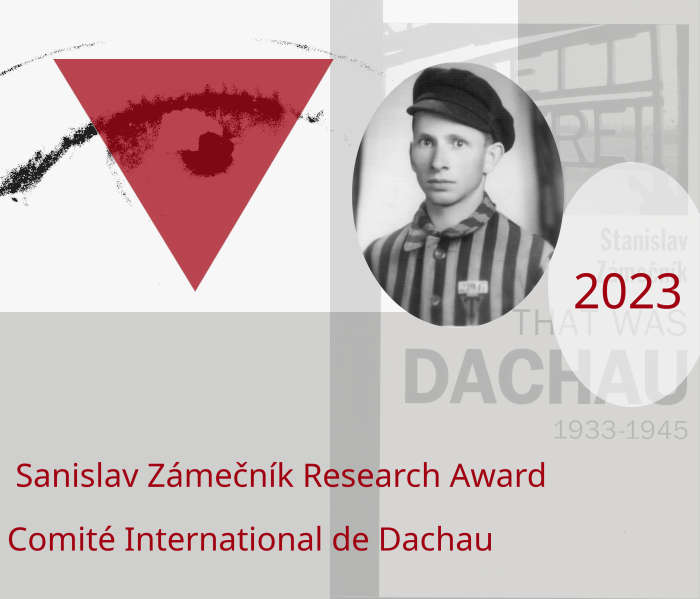Zámečník Prize of the Year 2023 goes to Mr Joscha Döpp

The CID jury has awarded the Stanislav Zámečník Prize of the Year 2023 to Mr Joscha Döpp for his master's thesis in history at the Johann Wolfgang Goethe University Frankfurt am Main with the title:
Charged with mass murder in Ukraine.
The federal German investigations against the
SS-Hauptsturmführer Kuno Callsen and the
the Darmstadt Einsatzgruppen Trial(1960-1968)
The work comprises a casuistic analysis of a Nazi trial in the late 1960s, which was conducted under the leadership of the Hessian Attorney General Dr Fritz Bauer. Mr Döpp writes
in the introduction to his work:
On the morning of 2 October 1967, eleven defendants were brought before the jury court at Darmstadt Regional Court. Among them were several commercial employees, a petrol station tenant, a retired tax secretary and a bank director. In the glare of the press, the men entered the jury courtroom in smart suits. "Not as proud as they once were," commented one local newspaper, some of them hiding their faces behind hats or sunglasses. What the eleven men had in common was that they had been involved in massacres of the Jewish civilian population in Ukraine in 1941 as members of Sonderkommando 4a (Sk 4a) of Einsatzgruppe C (mobile killing unit). They were charged with the murder of 80,000 people as "accomplices" or "accessories".
 Babyn Jar Bild Gordon Roemhild, Wikimedia Commons
Babyn Jar Bild Gordon Roemhild, Wikimedia Commons
On their marching route, which had taken them right across central and northern Ukraine until the end of 1941, the subcommandos of Sk 4a had left a veritable trail of blood in their path - probably the largest massacre was carried out at the end of September 1941 in the Babyn Yar ravine near Kiev: within two days, 33,771 Jews from Kiev were murdered there by men of Sk 4a in cooperation with the staff of the Higher SS and Police Leader (HSSPF) Russia South, Friedrich Jeckeln, and members of the Wehrmacht. .....
It was not until 1960 that investigators from the Central Office of the State Justice Administration for the Investigation of Violent National Socialist Crimes in Ludwigsburg, founded in 1958, came across Kuno Callsen and the crimes of Sk 4a. ....
When the chairman of the Darmstadt jury court, Vinzenz Paquet, opened the trial against Callsen and his ten co-defendants at half past eight on 2 October 1967, the crimes of Sk 4a, including the infamous massacre of Babyn Yar, were on trial for the first time in German judicial history.
The following questions are at the centre of the Master's thesis:
How was it that Callsen and his former Sk 4a comrades were able to lead blameless lives in West Germany until the 1960s, and under what conditions were their crimes finally prosecuted?
What knowledge about Sk 4a could lawyers build on in the 1960s and to what extent did they carry out basic research into the crimes of Sk 4a and thus prefigure historiographical narratives of the Holocaust?
How did the trial proceed and what defence strategies and perpetrators' self-perceptions came to light in the course of it? And last but not least:
What significance did the judgement of the Darmstadt jury court have in its legal-historical context and what impact did the trial have on the public?




